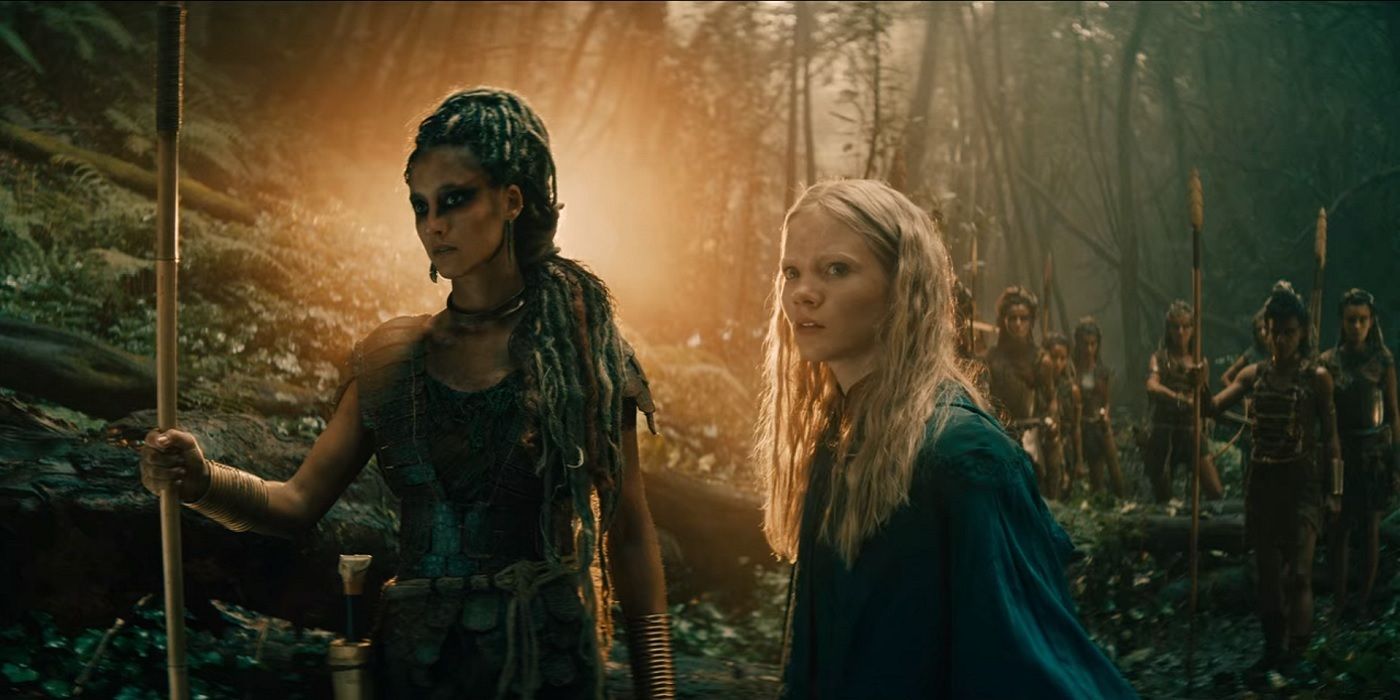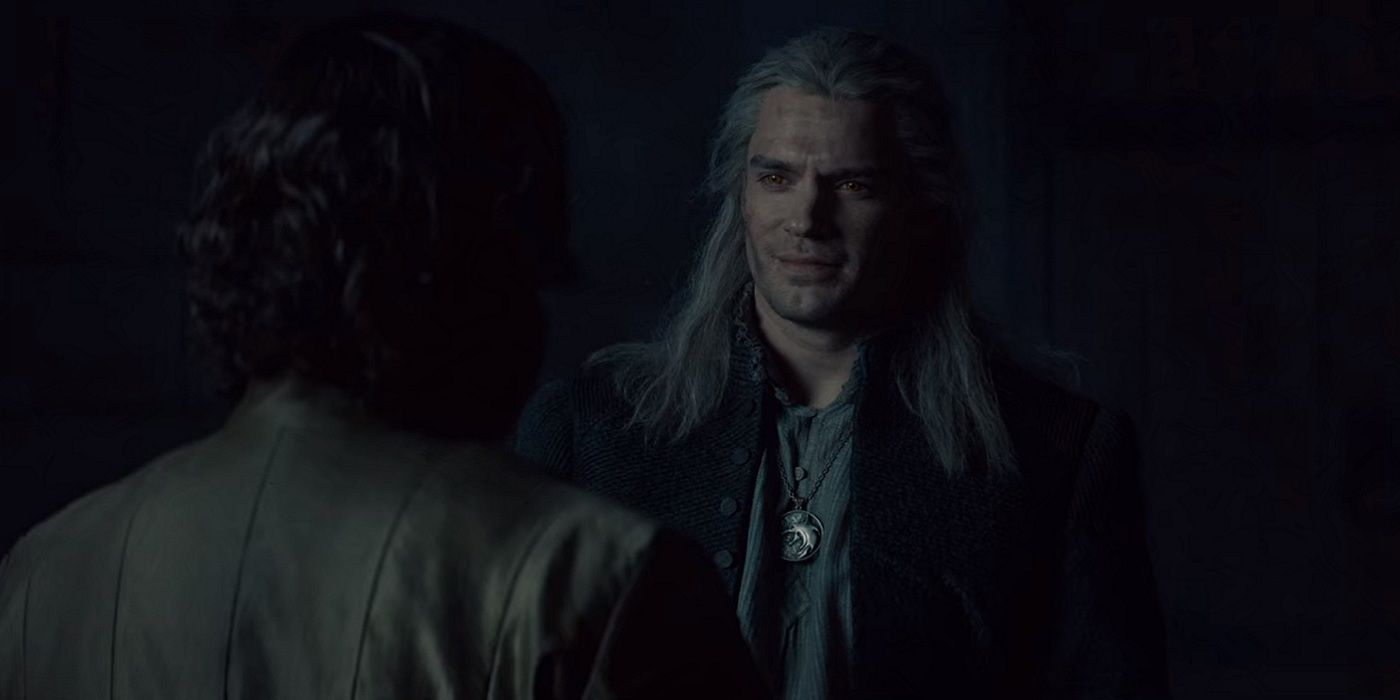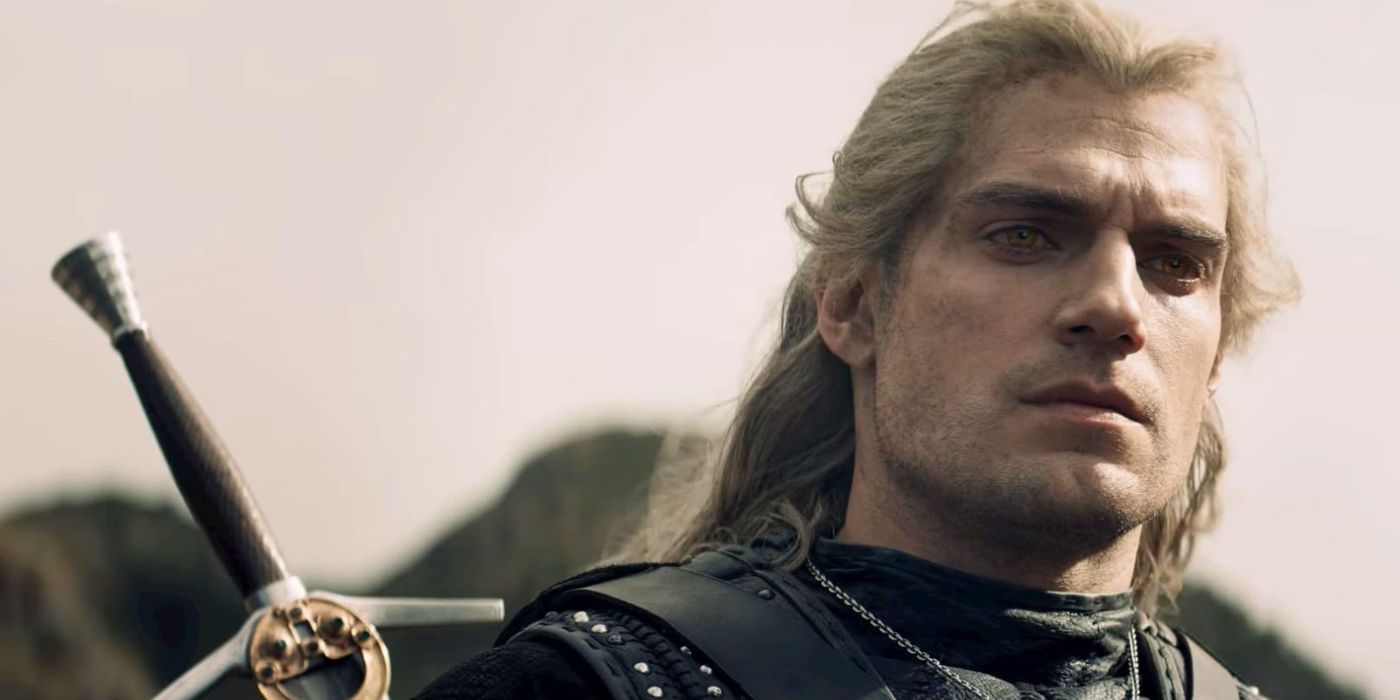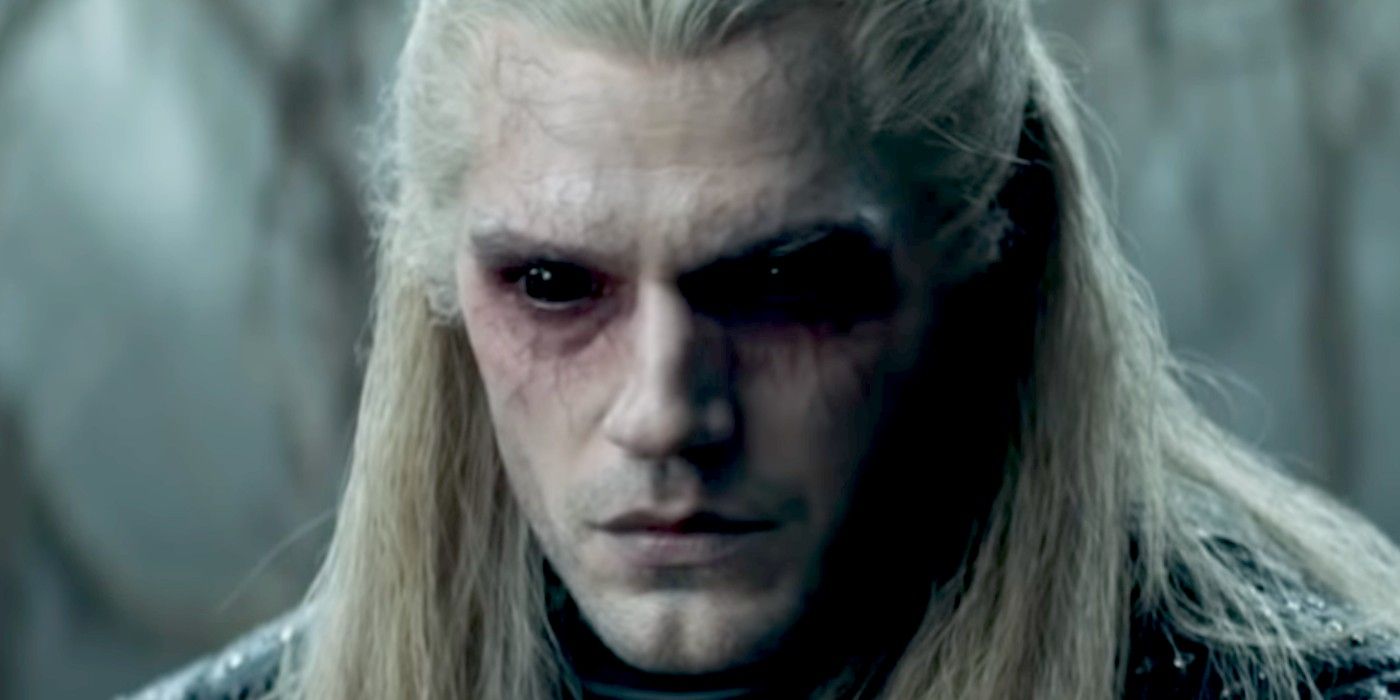Please note that this article will have spoilers for The Witcher up to Season 1 Episode 4: Of Banquets, Bastards and Burials.
The Witcher Episode 4: Of Banquets, Bastards and Burials is the first episode that makes it blatantly clear to viewers that the show takes place in different periods of time. While some more hardcore fans were able to pick up on that earlier on, other viewers may be confused by showrunner Lauren Schmidt Hissrich's choice to frame the narrative this way. But now that it's out in the open, Witcher viewers can keep this in mind for future episodes and perhaps the plot will be a bit easier to digest.
The weird narrative structure is made apparent in Geralt's scenes for The Witcher Episode 4, and for once, Geralt's scenes are by far the weakest link in an episode. We get to see Jaskier aka Dandelion again, which is a treat, but he and Geralt hardly interact. Instead the focus is on the betrothal feast for Princess Pavetta, Ciri's mother and the daughter of Queen Calanthe. Queen Calanthe died in the first episode and her kingdom Cintra was destroyed, so it's understandable that some viewers may be scratching their head at her reappearance.
Queen Calanthe is a caricature in this episode, a cartoon version of the "evil queen" archetype. She doesn't act like a real person, and the dialogue she's given is so absurdly mean that the show almost becomes a parody of itself. It's fun to watch Geralt react to her unnecessarily cruel words, but it's hard to take her or this entire story line seriously. It doesn't help that everything in Geralt's scenes feel like they are on fast-forward.
Instead of spending multiple episodes building the conflicts at hand here, the show rushes through everything, with one revelation after another during the betrothal feast so it's hard for anything to really land. It starts when a random knight named Urcheon shows up and uses the "Law of Surprise" to claim Pavetta's hand in marriage. The Law of Surprise in The Witcher is a weird rule where someone can essentially pay someone else with something they don't have yet, usually firstborn children or animals they acquire in the future, or whatever else. It's a bit hokey, and since viewers have not been introduced to this concept previously, it's bizarre to see everyone flare in rage when Urcheon invokes it.
Urcheon, by the way, is cursed and is part hedgehog. However, he and Pavetta have been secret lovers for some time, so she's aware of his condition and is even accepting of it. The last thing Queen Calanthe wants is Sonic the Hedgehog for her son-in-law, and so she tries to have the various knights in the room kill him. Geralt saves the day, but then Queen Calanthe attempts to kill Urcheon herself. Pavetta uses magical abilities she didn't even know she had to save her lover, and then the queen decides to accept Urcheon into her family.
Urcheon and Pavetta are married, and Urcheon insists Geralt take payment for saving his life. Geralt agrees to the Law of Surprise and tries to leave, only for Pavetta to throw up, indicating she's pregnant. So in the span of about 20 minutes, a bunch of dinner guests are slaughtered after a hedgehog man declares his love for a princess, the princess learns she has magic powers, she gets married, and finds out she's pregnant. This material may have been better served spread out over a few episodes instead of shoved all in one episode.
The Witcher has a problem with Geralt's adventures feeling like filler bottle episodes, with a conflict introduced and then resolved by the time the end credits roll. By contrast, the stories for Yennefer and Ciri have more forward momentum, for the most part. This episode is the first exception to that when it comes to Yennefer, who has time-jumped 30 years yet still looks the same as she did in The Witcher Episode 3. Now a seasoned mage, Yennefer is tasked with escorting Queen Kalis and her newborn daughter back to the safety of her kingdom, only for them to be attacked by an assassin and his monster.
Queen Kalis, much like Queen Calanthe, felt like a caricature as opposed to a fleshed out character. She is cartoonishly evil in this episode, at one point trying to give up her baby daughter to the assassin as a sacrifice in exchange for her own life. The assassin manages to kill both Queen Kalis and her baby in one of The Witcher's darker moments so far, though Yennefer is able to kill the assassin's scorpion-like monster at least.
Ciri, meanwhile, ends up in the brightly-colored Brokilon Forest, where she meets Queen Eithne and we get a nice change of pace from the drab, depressing scenery that makes up most of the show. Ciri is reunited with Dara, who discovers that she is Princess Ciri from Cintra, a kingdom notorious for its poor treatment of elves, and so their relationship gets a wedge in it. Little do they know that the evil Cahir, another cartoonish villain, has managed to track Ciri's location and is resuming his pursuit of her.
The Witcher Episode 4 drops the ball when it comes to all its villainous characters, as none of them come across as real, genuine people, even the ones that we've already met before and have a bit more character development under their belt. The time-jumping is needlessly confusing and the narrative structure will likely make the show inaccessible to more casual viewers. There's still some good stuff here, but this is quite easily the weakest episode so far.
The Witcher is available to stream now, exclusively on Netflix.




